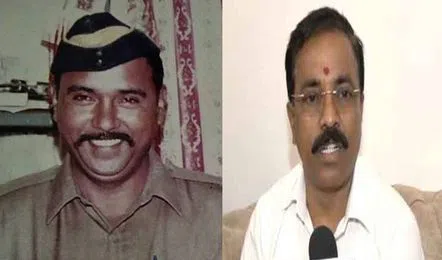The extradition of Tahawwur Hussain Rana to India has reignited powerful calls for justice from those most deeply scarred by the 2008 Mumbai terror attacks. Among them is Eknath Omble, the brother of the late Assistant Sub-Inspector Tukaram Omble, whose courageous act led to the capture of terrorist Ajmal Kasab.
Rana, a Pakistani-Canadian businessman, is accused of being a co-conspirator in the Mumbai carnage, which claimed over 170 lives. After years of legal proceedings, the United States finally approved his extradition, and he is expected to be brought to New Delhi under stringent security arrangements. Upon arrival, he will be taken into custody by the National Investigation Agency (NIA) for interrogation at a high-security location.
Tukaram’s Family Seeks Death Penalty for Rana
Tukaram Omble’s family has expressed strong emotions over the latest development. “This should have happened long ago,” said Eknath. “Those behind the attack should have been hanged without delay. We’ve waited too long for this moment. It’s time for real justice.”
The late ASI Tukaram Omble’s story remains one of immense bravery. On the night of the attack, he confronted heavily armed terrorists with nothing but a wooden baton. At Girgaum Chowpatty, he clung to the barrel of Kasab’s assault rifle, absorbing multiple bullets, and preventing further bloodshed. His actions allowed his team to apprehend the only surviving terrorist, a breakthrough that significantly advanced the investigation into the attacks.
Eknath Omble did not mince words when reacting to Rana’s extradition. “He should be given a punishment so severe that those who plan such attacks, especially from across the border, hesitate before plotting against our country,” he said. “We tolerated the delay in Kasab’s hanging because it revealed the involvement of Pakistan to the world. But we should not wait any longer to act in this case.”
Rana was Involved with Headley
Rana is alleged to have played a critical logistical and planning role alongside David Headley, who helped scout locations for the terror strike. Their links to the Pakistan-based terror outfit Lashkar-e-Taiba were well established in the aftermath of the attacks.
The 26/11 attacks shook the nation, as ten armed militants stormed landmarks across Mumbai, including the Taj Mahal Palace Hotel, the Chhatrapati Shivaji Terminus, and a Jewish center, killing civilians and security personnel alike. The siege lasted three days and left the city in trauma, forever etching the names of its heroes in the hearts of millions.
As India prepares to prosecute one of the key figures behind the carnage, families of the victims, along with the entire nation, now await the outcome hoping justice will be swift, firm, and uncompromising.


